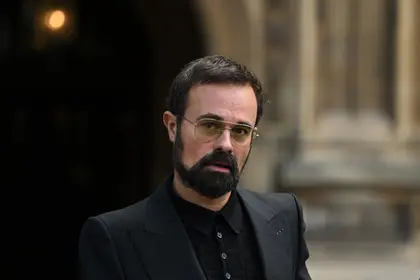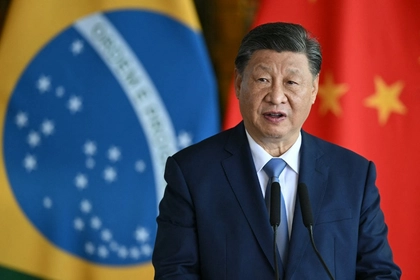Russian-born British media tycoon Evgeny Lebedev complained Thursday he was the victim of "Russophobia" in the UK, claiming businesses and institutions had "turned down" working with him and his newspaper amid the war in Ukraine.
Controversially appointed in 2020 to Britain's House of Lords -- parliament's unelected, upper chamber -- by scandal-tarred former prime minister Boris Johnson, Lebedev said the country was "long overdue" a reckoning with "corporate hypocrisy".
- Check the latest war in ukraine update from the Kyiv Post's news articles released today.
- Receive the latest Ukraine news bulletins for today.
JOIN US ON TELEGRAM
Follow our coverage of the war on the @Kyivpost_official.
In an article in his Evening Standard newspaper, in response to the furore over arch-Brexiteer Nigel Farage's bank account being closed in part for his right-wing political views, he argued the UK faced "a culture of virtue-signalling".
"Since the outbreak of the war in Ukraine I've been turned down by all manner of businesses and institutions, who applaud their anti-Russian sentiment as a symbol of moral rectitude after spending decades prostrating for the attention of Russian money," he wrote.
Lebedev, who has had British citizenship since 2010 and also owns the Independent newspaper, cited several alleged examples of firms and entities refusing his business.
"Businesses that were once so far up my backside you couldn't see their legs are so deluded they feel they can now pass judgement on me based purely on hearsay," he added.
The press baron, the son of a former KGB officer turned oligarch, Alexander Lebedev, is a contentious figure in Britain, in particular over his 2020 appointment as a peer.

Ukrainian Drones Hit Missile Arsenal, Key Russian Oil Facility in Russia’s Tver Region
Johnson nominated him for a life peerage -- with the title "Baron Lebedev, of Hampton in the London Borough of Richmond upon Thames and of Siberia in the Russian Federation" -- despite the reported objections of UK intelligence chiefs.
Lebedev supported Johnson during his time as London's mayor.
In his op-ed, the UK-Russian dual national noted he had spoken out against Moscow's invasion of Ukraine shortly after it began last year, but suggested he had received little credit for that.
"The media has misrepresented my family to such preposterous extent our name is now seen as a liability," he wrote.
"Since the start of the war, Russians rich and poor have both been treated as pariahs."
He concluded by saying: "We live in a society terrified of guilt by association and often too quick to judge those we deem to be tainted. Let's hope, beyond banking reforms, that we grow out of such stupidity."
You can also highlight the text and press Ctrl + Enter










